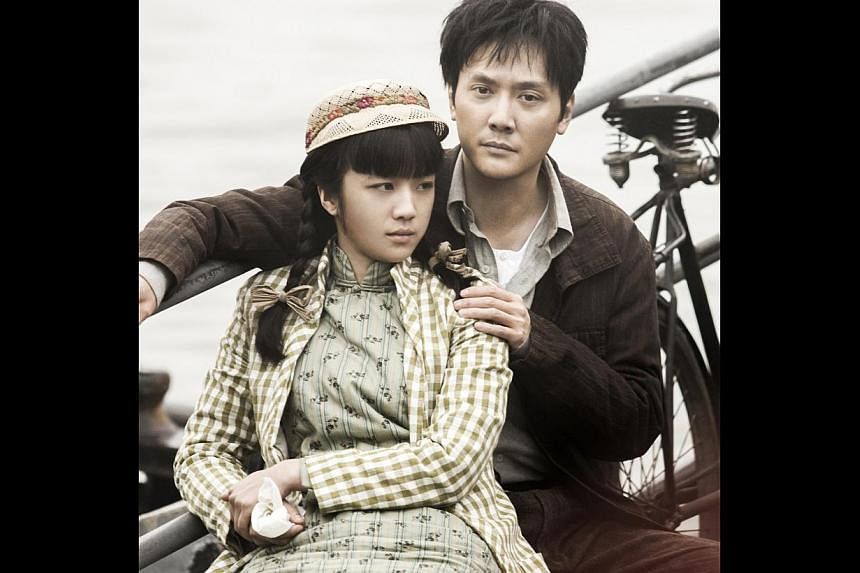Review Drama
THE GOLDEN ERA (PG13)
178 minutes/Opens tomorrow/***1/2
The story: Xiao Hong (Tang Wei) was a major female Chinese writer in the 1930s. Before she died at the age of 30, she was forced to wander from Harbin in north-east China to Hong Kong in the south against a backdrop of war and revolution. In Shanghai, she meets the literary giant of the time, Lu Xun (Wang Zhiwen), and looks to him as a father figure. Fellow writer Xiao Jun (Feng Shaofeng) is the love of her life but another writer Duanmu Hong Liang (Zhu Yawen) later steps into the picture.
The Golden Era is about the bohemian life of a talented, ill-fated woman thrust into a tumultuous time. Xiao Hong wants to find love and she wants to be able to write - both goals turn out to be tall orders.
She is bold and brash in following her heart - eloping with a married cousin and later shacking up with the man she was originally supposed to marry.
Abandoned by the latter, saddled with a huge hotel bill she cannot pay and pregnant, she meets Xiao Jun.
At one point, she remarks that she does not know if her works will be read in the future, but one thing is certain, gossip about her will live on.
Tabloids today would have had a field day squeezing her juicy story dry, but director Ann Hui (A Simple Life, 2011) is more interested in a nuanced portrayal of a character whose joy, pain and loneliness is made palpable by Tang Wei's charismatic presence.
The film has been duly nominated for five Golden Horse Awards, including for Best Film, Best Director and Best Actress.
Tang's performance also makes you wonder if Xiao Hong would have thrived in a different time. Her combustible relationship with fellow writer Xiao Jun is marked by passion and admiration as well as competitiveness.
As the mercurial Xiao Jun, Feng Shaofeng (Young Detective Dee: Rise Of The Sea Dragon, 2013) is also compelling to watch.
The film does not neglect the portrayal of Xiao Hong's struggles as an author.
A character remarks that everyone knows what it is like to be cold and hungry but no one can write about it the way she does.
And it is because Xiao Hong was destitute in Harbin, a situation that would deeply acquaint one with cold and hunger.
Hui evokes the bitter winters of the place and contrasts those with the warmth and bustle of a rickshaw-puller's canteen in a wonderfully atmospheric scene.
Xiao Hong's first visit to Lu Xun's home is filtered through a voice-over of her writing and one realises how observant she is in picking up details about people and places.
Taking a cue from her subject, Hui gives the film a novel-like structure as characters speak to the camera and talk about events in the past and in the future. It is a move that breaks with usual movie conventions, no doubt something Xiao Hong would have approved of.


